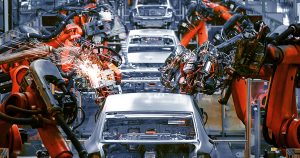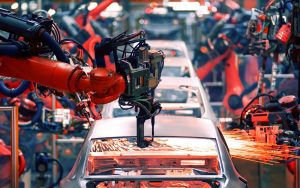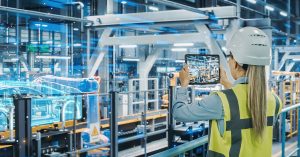
In the realm of manufacturing, the integration of Artificial Intelligence (AI) is redefining processes, enhancing efficiency, and unlocking unprecedented possibilities. This article delves into the transformative role of AI in manufacturing, emphasizing the pivotal starting point – data. From data-driven insights to predictive analytics, AI is revolutionizing the manufacturing landscape, propelling the industry into a new era of innovation.
**1. **The Data Revolution:**
*Overview:* At the heart of AI in manufacturing lies the data revolution. Modern production processes generate an immense volume of data, from real-time machine metrics to supply chain information. AI leverages this data to provide actionable insights, empowering manufacturers to make informed decisions and optimize operations.
**2. **Predictive Maintenance and Efficiency:**
*Overview:* AI algorithms analyze historical and real-time data to predict equipment maintenance needs. This proactive approach minimizes downtime by addressing issues before they escalate. Manufacturers can optimize machinery performance, extend equipment lifecycles, and ensure seamless operations, all thanks to AI-driven predictive maintenance strategies.
**3. **Quality Control and Defect Detection:**
*Overview:* AI’s image recognition and machine vision capabilities revolutionize quality control in manufacturing. By analyzing visual data, AI systems can detect defects with unparalleled precision, ensuring that only products meeting stringent quality standards reach the market. This not only enhances product quality but also streamlines production processes.
**4. **Supply Chain Optimization:**
*Overview:* The intricacies of modern supply chains are complex, but AI brings clarity. By analyzing data from various supply chain nodes, AI optimizes inventory management, predicts demand fluctuations, and identifies potential disruptions. This results in a more agile and responsive supply chain, reducing costs and enhancing overall efficiency.
**5. **Energy Management and Sustainability:**
*Overview:* AI plays a crucial role in sustainable manufacturing by optimizing energy consumption. Analyzing data on energy usage patterns, AI systems identify opportunities for efficiency improvements. This not only contributes to cost savings but aligns with the global push towards environmentally conscious manufacturing practices.
**6. **Smart Manufacturing and IoT Integration:**
*Overview:* The marriage of AI with the Internet of Things (IoT) heralds the era of smart manufacturing. AI algorithms process and analyze data from interconnected devices, enabling real-time decision-making. From smart sensors on the factory floor to connected products, AI-driven smart manufacturing enhances overall agility and responsiveness.
**7. **Demand Forecasting and Production Planning:**
*Overview:* Accurate demand forecasting is a cornerstone of effective production planning. AI algorithms excel in analyzing historical data, market trends, and external factors to predict demand fluctuations. This insight enables manufacturers to optimize production schedules, minimize overstock or shortages, and respond proactively to market dynamics.
**8. **Human-Machine Collaboration:**
*Overview:* AI in manufacturing isn’t about replacing human workers; it’s about collaboration. AI systems enhance human decision-making by providing data-driven insights. Workers can focus on tasks that require creativity, problem-solving, and emotional intelligence, while AI handles data-intensive processes, fostering a harmonious human-machine collaboration.
**9. **Continuous Improvement and Adaptive Learning:**
*Overview:* AI systems are designed to continuously learn and adapt. By analyzing data on production processes and outcomes, AI identifies areas for improvement. Whether it’s refining manufacturing parameters or adjusting quality control measures, AI fosters a culture of continuous improvement, driving efficiency gains over time.
**10. **Challenges and Ethical Considerations:**
*Overview:* While the potential of AI in manufacturing is immense, it comes with challenges and ethical considerations. Issues such as data privacy, security, and the impact on employment must be addressed responsibly. Manufacturers adopting AI must navigate these challenges to ensure a sustainable and ethical integration of AI technologies.
**Conclusion:**
In the data-driven landscape of modern manufacturing, Artificial Intelligence stands as a catalyst for innovation and efficiency. From predicting maintenance needs to optimizing supply chains and fostering human-machine collaboration, AI transforms the manufacturing industry. As manufacturers embrace the power of data, they unlock the full potential of AI, paving the way for a future where intelligent systems and human ingenuity work hand in hand to shape the next industrial revolution.





